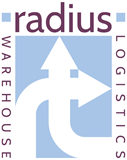Logistics is the backbone of any business. To keep goods and materials moving around efficiently, companies have to rely on a logistics network to connect them with suppliers and customers locally and globally.
Cross-trade logistics is quickly becoming the future of logistics, thanks to its ability to streamline operations and reduce costs. Here’s why you should consider it for your own business.
What is Cross-Trade and how Does it Work in the Logistics Industry?
Cross-trade occurs when a company in one country exports goods to another country on behalf of a company in a third country. In other words, the trader does not have an established relationship with the buyer, and the buyer does not have an established relationship with the seller.
This type of transaction is often used when buyers and sellers are located in different countries and when there are trade restrictions in place.
For example, if Company A in Country X wants to buy goods from Company B in Country Y, but there are no direct flights between the two countries, Company A may ask Company C in Country Z to arrange for the goods to be shipped from Country Y to Country X. In this case, Company C is acting as a cross-trader.
Cross-trade can also be used to avoid tariffs or other trade barriers. In general, cross-trade transactions are more complex than traditional buyer-seller relationships, and they often require the assistance of a third-party logistics provider (3PL) with expertise in international trade.
Companies should carefully consider whether cross-trade is the best option for their needs before entering into any agreements.
The Benefits of Cross-Trade for Businesses and Consumers
There are numerous benefits to cross-trade for businesses and consumers. For businesses, cross-trade provides access to new markets and opportunities for growth.
It also allows businesses to tap into new customer segments and expand their customer base. Additionally, cross-trade can help companies reduce costs by taking advantage of economies of scale.
For consumers, cross-trade provides access to a broader range of goods and services. It also helps to promote competition, leading to lower prices and increased quality. Moreover, cross-trade can help to foster innovation and provide consumers with a more fantastic choice.
Ultimately, cross-trade offers significant benefits for both businesses and consumers.
How Cross-Trade is Changing the way we Think About Logistics
Cross-trade is a logistics term that refers to the movement of goods between two countries where the shipper and consignee are not located in the same region. In other words, cross-trade shipments involve more than one international border crossing.
This shipping arrangement is becoming increasingly common as businesses strive to become more global in their operations.
There are multiple reasons for this trend, but one of the most important is that cross-trade can help minimise logistical difficulties and costs.
By working with a single logistics provider who has expertise in managing cross-border shipments, businesses can streamline their operations and reduce overall shipping costs.
In addition, cross-trade can also help to reduce lead times and ensure that shipments arrive on time.
As a result, cross-trade is changing the way we think about logistics and opening up new possibilities for businesses that want to operate globally.
The Challenges Facing the Future of Cross-Trade
As international trade continues to grow, so does the importance of cross-trade. Cross-trade occurs when goods are shipped between two countries that have no direct trade agreement with each other.
This type of trade can be immensely complicated, as it often involves multiple jurisdictions and various laws and regulations. As a result, cross-trade can be very time-consuming and expensive.
Additionally, cross-trade can be risky, as there is often a lack of transparency and communication between the parties involved. These challenges are only likely to increase as more and more countries enter into cross-trade arrangements.
As such, businesses must be aware of their challenges when engaging in cross-trade. Only by understanding these challenges can they hope to overcome them.
How to Get Started With Cross-Trade
Cross-trade typically refers to the buying and selling of goods between two companies located in different countries.
This type of trade can benefit companies because it allows them to bypass tariffs and other trade barriers. In addition, cross-trade can help companies diversify their product offerings and tap into new markets.
However, before engaging in cross-trade, you must do your research and choose a partner that you can trust. You will also need to be mindful of the risks involved, such as currency fluctuations and political instability. Nevertheless, if done correctly, cross-trade can be a valuable tool for expanding your business.
Conclusion
Cross-trade is a valuable process that can benefit businesses and consumers. Streamlining the logistics industry makes it easier for companies to get their products to market quickly and efficiently.
It also offers consumers more choice and convenience when shopping online. While there are some challenges facing cross-trade in the future, we believe that this mode of transportation will continue to grow in popularity.
Contact us today if you’re interested in learning more about how cross-trade works or want to start using it in your business. We would be happy to help!



